On June 16-17, 2017, more than 70 major superiors from Tanzania’s women religious communities gathered at the Tanzanian Episcopal Conference Center in Dar es Salaam for a two day workshop titled Religious Vocation, Leadership & Justice Ministry. Funded by a grant received from the Adorers of the Blood of Christ, this workshop was the third of its kind under the auspices of the Africa Faith &Justice Network’s Women Empowerment Project (the first two being in Nigeria and Ghana).
The first goal of the workshop was to bring the major superiors together to reflect on their leadership role in relation to the Church’s call for “action on behalf of justice” and on Pope Francis’ urging that religious “wake up the world” to the existing injustices. Secondly, we wished to mobilize the political will of the major superiors to engage the structures of injustice in their country, knowing that when they are empowered in this area, they will, in turn, lead their sisters to do likewise.
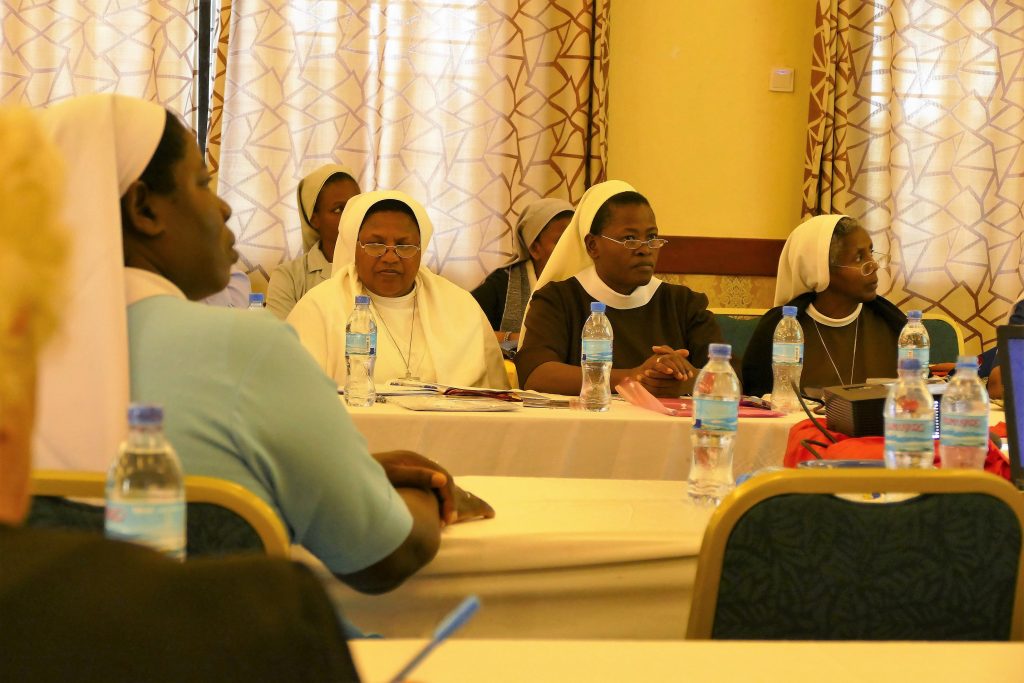
Answering the Call
The first day of the workshop began with the president of the major superiors, Sr. Gaspara Kashamba, welcoming the sisters and the AFJN team. She expressed her happiness that AFJN came to “enlighten the group on matters of justice ministry” and assured us of the sisters’ openness to hearing AFJN’s message. In her introductory remarks, Sr. Eucharia Madueke, SNDdeN, Coordinator for the Women Empowerment Project, thanked the sisters for their great enthusiasm, evident in the large number of sisters present. She recognized and affirmed many of the ways sisters are working to ensure a fair society and suggested that the sisters’ dedication and commitment indeed drove them to leave behind their busy schedules to travel from far and near to attend the conference. Sr. Eucharia then laid out the context for the conference and provided some key reasons why the sisters must take an active role in shaping the society of which they are a part by:
- Answering the call for all Christians to participate in the liberating mission of Christ;
- Confronting structures of injustice, given that these structures continue to increase and multiply, dehumanizing and hurting the people we serve;
- Acknowledging the widening gap between the “haves and have-nots” that continues to perpetuate poverty in our societies;
- Recognizing, as Pope Benedict VI put it, that “charity without justice is false.”
AFJN Executive Director, Fr. Aniedi Okure, OP, then presented the keynote address. He highlighted some of the governance challenges in Tanzania and Africa as a whole, such as corrupt and unaccountable leaders, human rights abuses, lack of rule of law, lack of the mechanisms for active participation in governance, and environmental degradation caused by the mistreatment of land. He spoke on the importance of responsive government, good governance structure, and engaged civil society, all crucial in advancing the common good. Fr. Aniedi also touched upon the need for activism in the face of injustice and unjust structures since these bear negatively on the people they serve. Considering the sisters’ proximity to the people, they are keenly aware of the needs and can shoulder the burden of providing them those critical services necessary for survival.
Following the keynote speech, Sr. Eucharia spoke on the Christian Call to Love in Action. She emphasized the need for the sisters to balance charity work with engaging the structures that contribute to the impoverishment of the people they serve. Her input emphasized the moral obligation of every sister to actively engage injustice, including the structures and systems that oppress and dehumanize the individual.
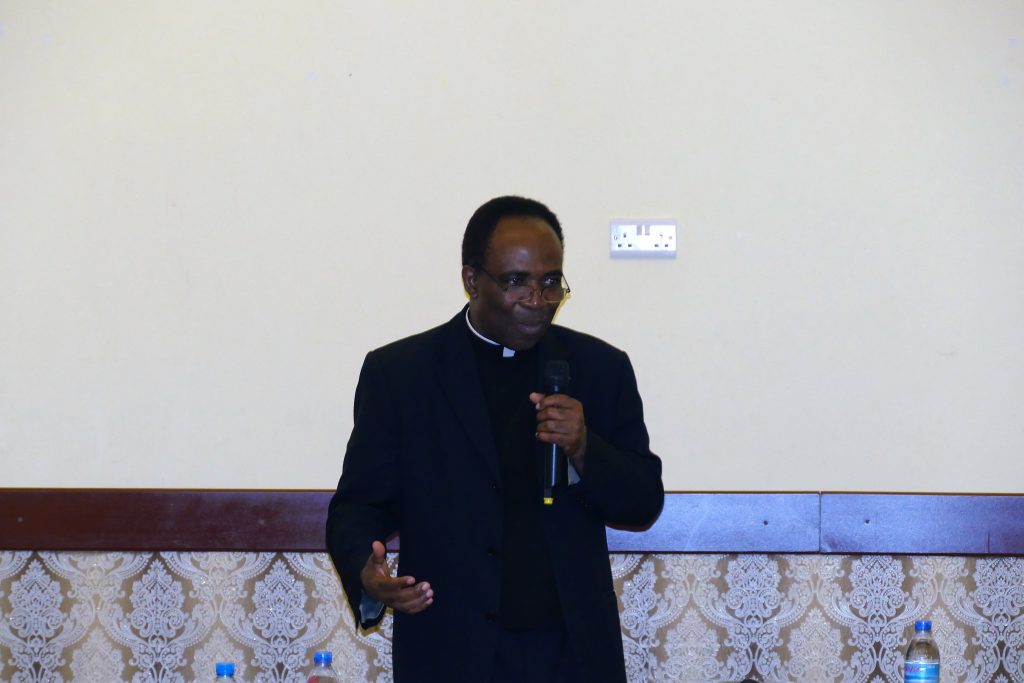
Reflecting on the Sisters’ Role in Society
In both small and large groups, participants discussed how the mission of sisters in Tanzania has contributed to the common good. At the plenary sharing, they affirmed their work of charity, such as in the provision of education, healthcare, and other social services. They noted that these services have promoted integral human development as well as contributed to the upward social mobility of “some members of the society.” Nonetheless, they recognized that some socio-cultural structures and institutions, such as the low status accorded to women, social stratification of albinos, etc. continue to hinder the flourishing of the fruit of their charitable work. The sisters acknowledged that the increase in poverty of the people they serve forces many of them to depend on the sisters for survival. Additionally, there is the untold difficulty that they as women religious face in trying to provide services to the numerous people who need them amidst a decrease in resources. In the end, the sisters were convinced that the best way to advance the common good effectively is for them to balance their charity work with engaging the structures that facilitate and sustain the poverty conditions that make people dependent on charity.
Input on the Principles of Catholic Social Teaching which followed and brought the first day of the conference to an end was intended to enable the sisters to connect the social realities in Tanzania to those that prompted the teachings of the church. It also sought to enable the sisters to respond to their moral obligation of advancing a just society. Concluding her presentation, Sr. Eucharia challenged the major superiors to live up to their Christian calling by raising their hands and voices, especially in situations where the teachings of the Church are compromised. Fr. Aniedi added a warning to the sisters, noting the negative consequences that might befall one who questions the structures of injustice. Nevertheless, he urged that no experience is a bad experience unless we refuse to learn a lesson from said experience.
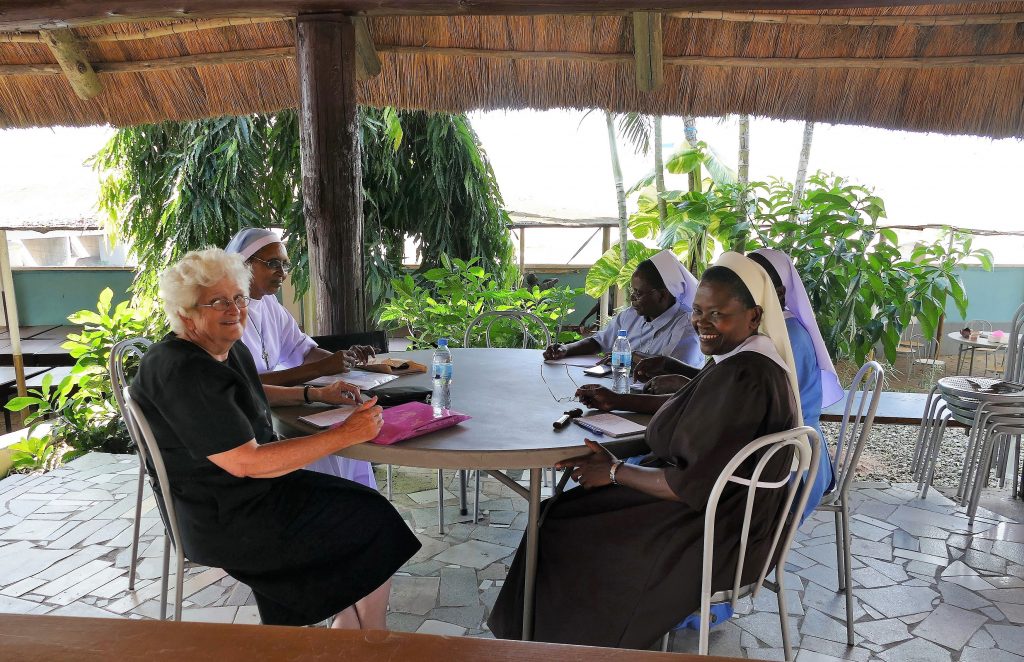
Incorporating Laudato Si
The second day of the conference, which began after morning prayers and celebration of Mass, was devoted to Pope Francis’ environmental encyclical Laudato Si. During the planning of the gathering, the sisters specifically requested input on this document. Fr. Aniedi gave a general overview of this encyclical in light of environmental degradation in Africa as a whole and in Tanzania in particular. Using powerful visuals, he highlighted ways Africa’s environment and the peoples’ health are undermined through land grabbing, mining, and use of chemicals, as well as the social and economic implications of these practices on the general population. He concluded by emphasizing how our land is our life, urging the sisters to be active in ensuring that “our common home” is kept safe and clean.
Helping to drive home the message of Pope Francis, Tanzanian professor of Journalism Denis Mpagaze shared his field research on land grabbing in Tanzania, a situation he said has led to the taking away of land, the only real means of livelihood for the people. Fr. Barthelemy Bazemo from AFJN also worked with the sisters in examining systematically the trend of land grabbing in Tanzania. At the end of this session, each sister, at her request, was provided a copy of the encyclical.
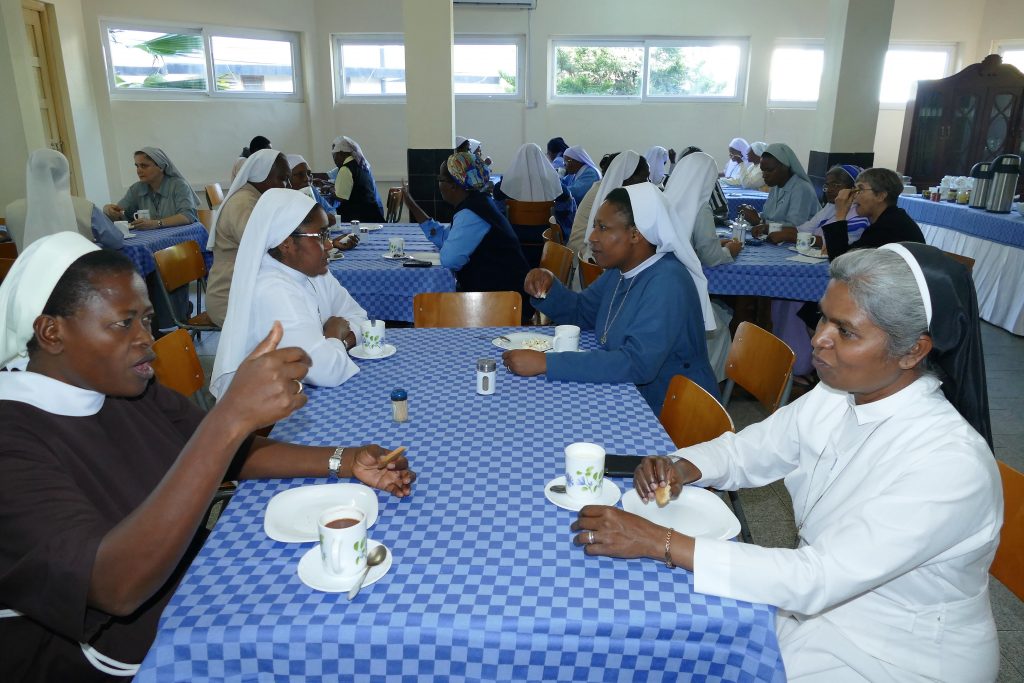
What’s Next
The detailed discussions and clear visual representations of the health, social, and economic implications of environmental destruction moved the sisters to take action to address this problem and its negative consequences, such as poverty and social decay. These issues have great repercussions on women and children in particular. In the end, the sisters chose to act on behalf of justice at both the national and local levels. They agreed to visit the president of the country to request more responsible investment in the land as well as in production of radio campaigns to denounce violence against women and children. To keep themselves abreast of these commitments, the sisters inaugurated a steering committee of one dozen sisters from various religious communities representing different parts of the country to continue this work.
Before the AFJN team left Tanzania, the steering committee had drafted the proposal they plan to present to the country’s president and was already in the process of securing a suitable date for meeting with him. The use of Whatsapp, emails, and phone calls helps us stay in touch with the committee members until the time when we are able to raise additional funds to conduct more advocacy training for sisters in various regions of Tanzania, especially those who are not major superiors. We want an audience of sisters that is accustomed to working directly with the people, especially women and children. The major superiors present at the June workshop seemed animated by the discussion and its outcome just as the AFJN team was encouraged by the strong positive reaction of the participants.
Written by Sister Eucharia Madueke, SNDdeN, Coordinator, AFJN Women’s Empowerment Project
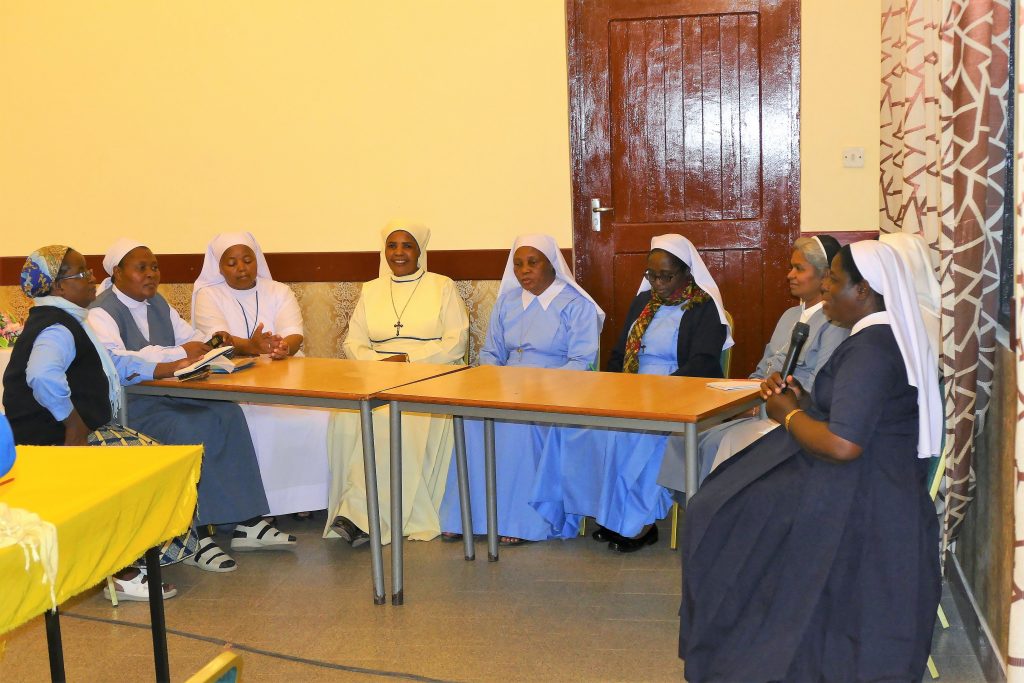
Tanzania Steering Committee
